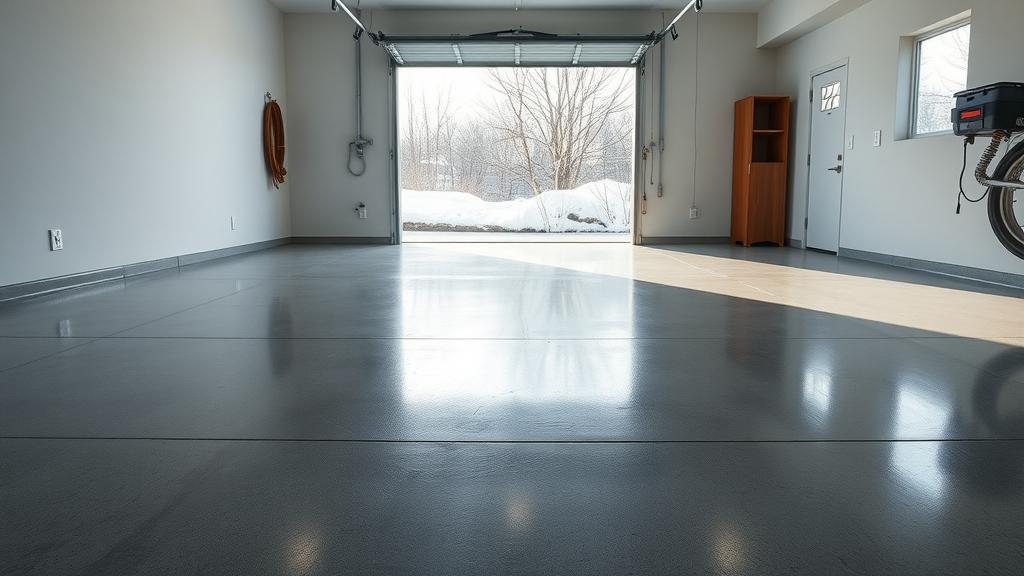
Ever wondered why some garage floors withstand the harshest winters while others crack and crumble? As snow and ice move in, choosing the right sealant for your garage isn’t just about looks—it’s crucial for keeping your floor safe, strong, and spotless through freezing temperatures and relentless salt exposure. In this expert guide, you’ll discover the best sealants for garage floors, thoroughly reviewed, compared, and explained, so you can make the smartest choice for winter protection—and the long-term value of your home.
What You'll Learn About the Best Sealants for Garage Floors
How to select the best sealants for garage floors that withstand winter conditions
Differences between leading concrete sealer, garage floor sealer, and epoxy solutions
Expert-recommended floor sealers for durability, safety, and longevity
Key factors: water-based vs acrylic sealer, floor coating types, and hot tire resistance
Winter Is Coming: Why You Need the Best Sealants for Garage Floors
“Don’t let harsh winters destroy your garage floor—choose a sealant that endures snow, salt, and freezing temperatures.”
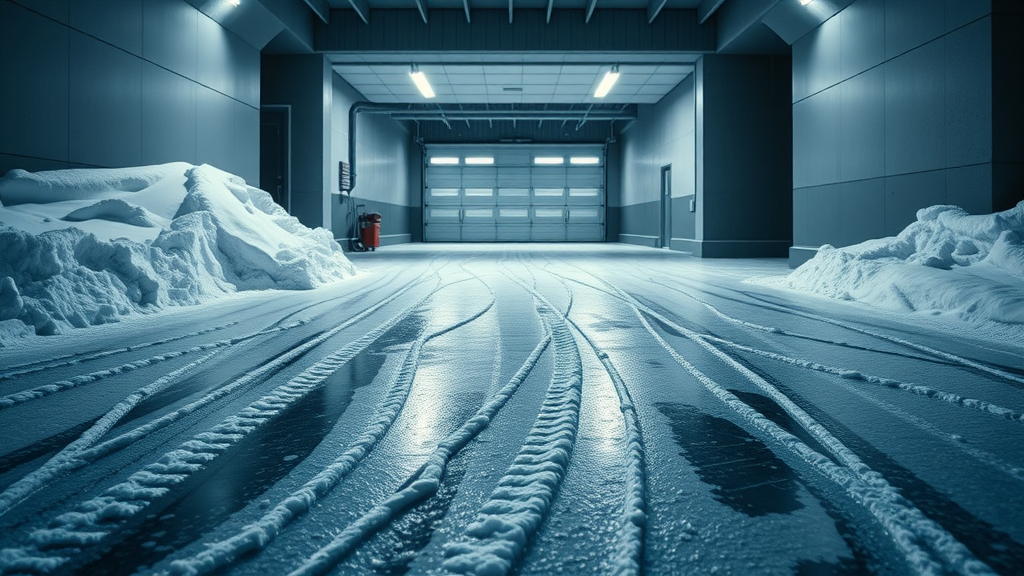
When temperatures drop and snow and ice take over, your concrete garage floor faces its most dangerous foes. Without a quality floor sealer, moisture and road salts will infiltrate the surface, causing cracking, pitting, and ugly stains. What starts as a minor surface issue can escalate to significant structural damage as repeated freeze/thaw cycles exploit any weakness. A dependable garage floor sealer creates a durable, protective surface film that blocks out water, salt, and oil. This means fewer repairs, less time cleaning, and safer footing as you move through your garage all winter. Getting proactive now ensures your space resists even the harshest cold-weather conditions, so you can say goodbye to costly springtime repairs.
How to Choose the Best Sealants for Garage Floors: Key Criteria
Concrete floor compatibility: matching floor sealer to your surface
Epoxy vs acrylic sealer vs water-based acrylic—advantages for garage floors
Hot tire and chemical resistance for concrete garage floors
Climate-specific features: water repellent solutions for freeze-thaw cycles
Choosing the best sealants for garage floors begins with assessing your concrete surface and the primary threats during winter months. A quality concrete sealer needs to bond tightly to the surface of the concrete, adapting to any pre-existing garage floor coatings or surface film. Epoxy floor coatings are superior for maximum durability and hot tire resistance—a must if you drive in and out during frigid, snowy days. Acrylic sealers offer easier, quicker application and are less prone to yellowing or blistering from winter road salts.
Pay extra attention to water repellent or water-based acrylic sealers. These products boast freeze/thaw protection specifically suited for climates with aggressive seasonal cycles. Look for a sealer that offers both excellent chemical resistance and slip reduction, ensuring your garage stays safe, clean, and protected from both the elements and everyday mishaps.
2024 Buyer’s Table: Comparison of Top Garage Floor Sealers & Concrete Sealers
Product Name |
Type (Epoxy, Acrylic, Water Based) |
Best For |
Longevity |
Gloss Level |
Consumer Rating |
Price Range |
|---|---|---|---|---|---|---|
Armor AR350 |
Acrylic Sealer |
Concrete Garage Floors |
5+ Years |
Medium-High |
4.8/5 |
$$$ |
Rust-Oleum EpoxyShield |
Epoxy Floor Coating |
Garage Floors, Concrete Floors |
10 Years |
High |
4.6/5 |
$$ |
Foundation Armor SX5000 |
Water Based Acrylic Sealer |
Freeze/Thaw Resistance |
7 Years |
Low |
4.7/5 |
$$$ |
ToughCrete Concrete Sealer |
Water Repellent |
Ice/Salt Protection |
10 Years |
Matte |
4.5/5 |
$$ |
In-Depth Reviews: Best Sealants for Garage Floors
Armor AR350 Acrylic Sealer for Garage Floor: Pros and Cons
Armor AR350 stands out as an acrylic sealer tailored for garage floor applications. It penetrates deep into the concrete floor, offering a medium-high gloss while resisting hot tire pickup, automotive fluids, and winter salt. Unlike some coatings that sit as a brittle surface film, AR350 is formulated to flex slightly, minimizing cracking from repetitive freeze/thaw cycles.
The pros include its easy to apply nature, fast drying time, and enhancement of the natural stone look in the garage. However, because it is solvent-based, proper surface prep and ventilation are critical to avoid streaking or rapid curing. Additionally, it may not provide the same hardness or chemical resistance as thicker epoxy coatings, making it most effective in garages that require occasional but not continuous heavy traffic. When used as directed, this floor sealer balances user-friendliness with above-average winter protection, helping homeowners preserve their investment with minimal effort.
Foundation Armor SX5000 Water Based Acrylic Sealer: Cold-Weather Performance
Foundation Armor SX5000 is engineered specifically for severe winter climates. This water based acrylic sealer uses advanced silane-siloxane chemistry, allowing it to chemically react with the surface of the concrete and form a robust water barrier. Unlike acrylic topcoats, SX5000 is a true penetrating sealer: it doesn’t leave a glossy layer, but instead soaks deep below the surface to protect from within.
This is a major advantage for regions experiencing frequent freeze/thaw cycles and regular exposure to deicing salts. The absence of a surface film means there’s nothing to peel or chip under harsh conditions, and the matte finish reduces slipperiness from snow and ice. With a 7-year lifespan and outstanding water repellent properties, Foundation Armor SX5000 is a top choice for homeowners who want set-and-forget winter resistance without the maintenance demands of higher-gloss epoxies or acrylics.
Rust-Oleum EpoxyShield: Epoxy Floor Excellence for Concrete Garage Floors
When industrial strength is a must, Rust-Oleum EpoxyShield delivers with its two-part epoxy floor coating system. Designed to handle high-traffic garages, this product forms an exceptionally hard, glossy finish that is particularly effective for resisting hot tire marks, oil drips, and aggressive winter salt stains. Its long 10-year lifespan provides more value over time compared to most acrylic-based solutions.
The application, while straightforward for seasoned DIYers, demands disciplined surface prep to ensure lasting adhesion—skipping the cleaning, etching, or priming steps may invite premature failure. On the upside, EpoxyShield offers significant aesthetic improvement, turning dull or weathered garage floors into sleek, showroom-worthy surfaces. Its high solids formula means better coverage and durability for those serious about long-term investment in their concrete garage floor.
Hot Tire, Chemical, and Water Repellent Performance Compared
When assessing garage floor sealers for winter, three factors matter most: resistance to hot tire pickup, chemical resilience, and water repellent technology. Epoxy products like EpoxyShield excel in resisting rubber transfer and automotive fluids, but penetrating sealers such as SX5000 offer better long-term repulsion of water and deicing chemicals.
Acrylic coatings deliver solid middle-ground performance, balancing hot tire resistance with easier, more forgiving application. For everyday drivers, an advanced water based acrylic sealer shields against immediate winter threats, while true epoxy floor coatings stand up to repeated abuse from parked cars, tools, and heavy equipment. Ultimately, the best sealants for garage floors combine these features for superior winter endurance.
Essential Features for the Best Sealants for Garage Floors in Winter
Freeze/thaw protection with water repellent technology
Resistance to salt, oil, and chemicals
Hot tire and abrasion durability
User-friendly application on concrete garage floors
Modern floor sealers are engineered to combat not only moisture, but also the hazards of winter driving—namely deicing salts, motor oil, and repeated hot tire exposure. It’s critical that your garage floor sealer maintains integrity through hundreds of freeze/thaw cycles. Water-based acrylic sealers and advanced epoxy formulations often include special additives that make them water repellent, preventing infiltration at both the surface of the concrete and beneath. When choosing products, always look for those certified for high abrasion and impact resistance, so your concrete garage floor stands strong through years of seasonal punishment.
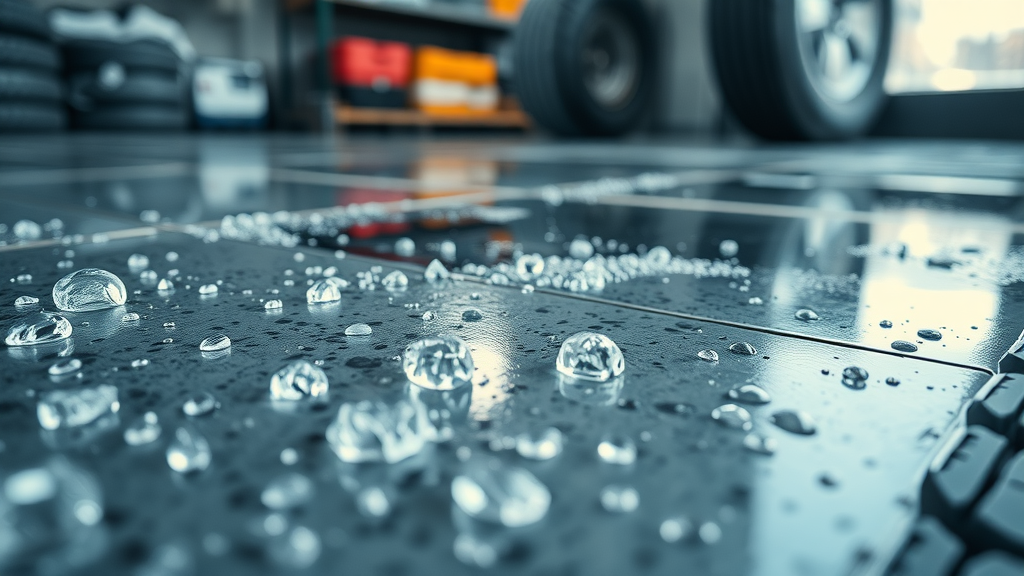
Expert Quotes on the Best Sealants and Garage Floor Sealer Choices
“For bitter winters, opt for a floor sealer that penetrates deep—surface-level coatings just won’t cut it.” – Mark L., Concrete Specialist
Lists: Best Garage Floor Sealers for Various Needs
Best overall garage floor sealer: Armor AR350 Acrylic Sealer
Best water based concrete sealer: Foundation Armor SX5000
Best acrylic sealer for concrete garage floor: Armor AR350
Best epoxy floor for high-traffic garage floors: Rust-Oleum EpoxyShield
Best eco-friendly and low-VOC floor sealers: ToughCrete Concrete Sealer
Real Customer Reviews: Best Sealants for Garage Floors in Extreme Winters
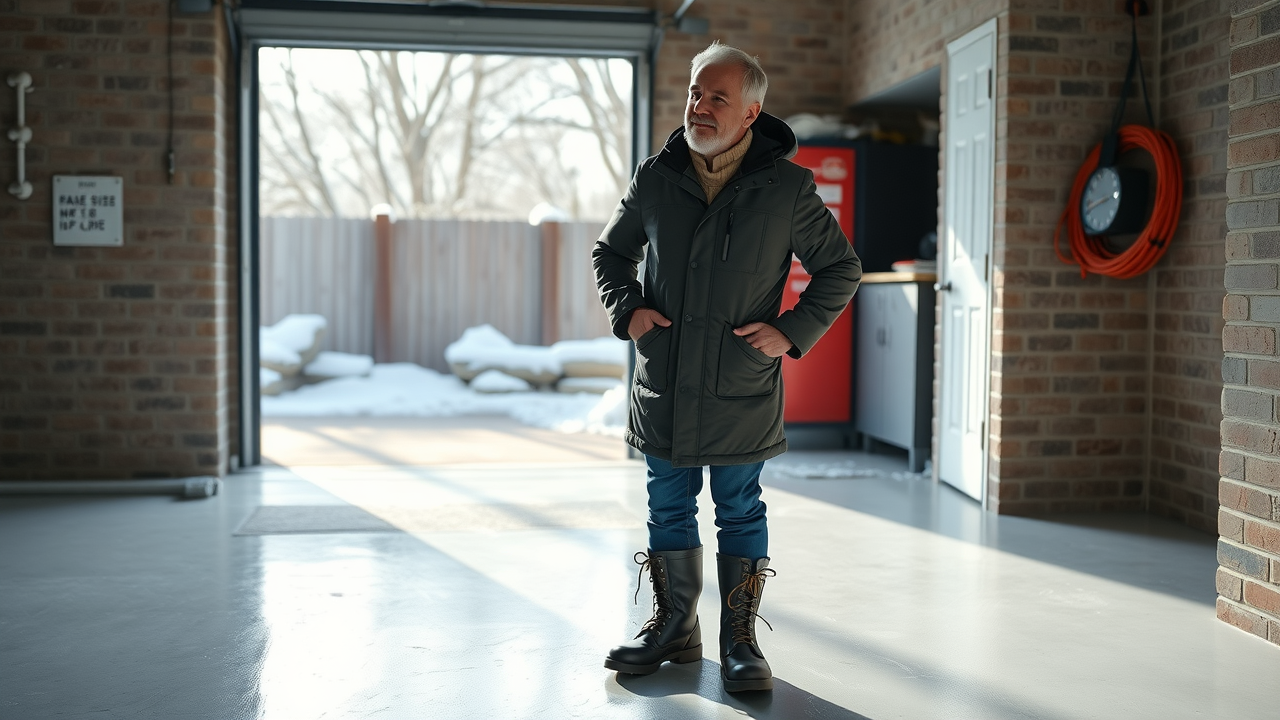
User Experiences: Longevity, Gloss, and Winter Durability
Homeowners living in regions prone to snow and ice consistently report the benefits of investing in a quality garage floor sealer. For many, Armor AR350’s balanced gloss helps the concrete look cleaner longer, even when road salts are tracked inside. Others prefer Foundation Armor SX5000’s matte, invisible finish that feels like working on a freshly poured slab every spring. Customers who chose Rust-Oleum EpoxyShield appreciate its ability to resist hot tire pickup even after years of parking and abrasive cleaning.
Real-world feedback highlights the importance of proper surface prep and correct application, which directly impact longevity and performance over multiple winters. DIYers favor the easy to apply nature of water based acrylic options, while those willing to invest more time up-front see lasting value from thicker epoxies. Across brands, the consensus is clear: a well-sealed garage floor is not just about aesthetics—it’s about protection, safety, and confidence throughout the coldest months.
People Also Ask: Best Sealants for Garage Floors
Which coating is best for a garage floor?
Epoxy floor coatings and high-quality water based acrylic sealers are often considered the best for garage floors due to their exceptional durability, chemical resistance, and winter protection. Choose epoxy for maximum hardness or acrylic for easier DIY application.
Should you put a sealer on a garage floor?
Yes, sealing a garage floor with a recommended floor sealer or concrete sealer protects against moisture, stains, salt damage, and freeze/thaw cycles, dramatically extending the life and appearance of your concrete garage floor.
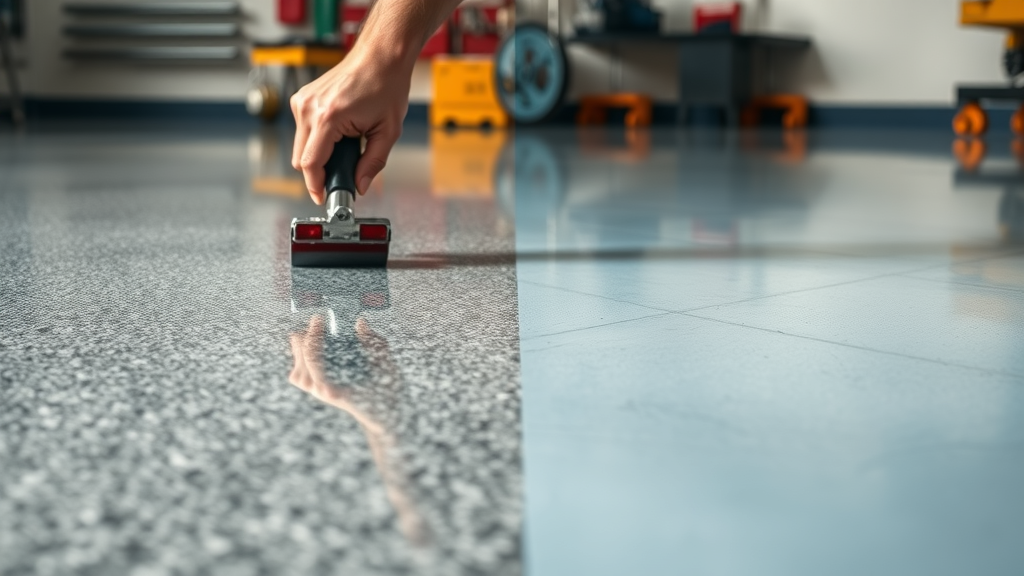
Is there anything better than epoxy for garage floors?
While epoxy is tough and long-lasting, some water based acrylic sealers and polyaspartic coatings offer faster cure times, better UV resistance, and improved cold-weather performance for garage floors prone to winter stress.
What do professionals use to epoxy garage floors?
Professionals prefer industrial-grade, high-solids epoxy floor systems with proper concrete sealer primers and durable floor coatings, ensuring optimal adhesion and longevity in harsh environments.
FAQs: Best Sealants for Garage Floors
How do I apply an acrylic sealer to my garage floor?
Prepare the concrete surface by cleaning and etching; let it dry. Using a roller or sprayer, apply one thin, even coat of acrylic sealer, allow it to cure, then follow with a second coat if desired. Always follow the manufacturer’s instructions and test a small area first to verify sheen and adhesion.What is the difference between a concrete floor sealer and a floor coating?
A concrete floor sealer is typically a clear or slightly tinted product that penetrates or sits on the concrete to provide resistance against moisture and stains, while a floor coating (like epoxy) forms a thicker, colored layer on the surface for enhanced durability and aesthetics.Can I use water based acrylic sealer in freezing temperatures?
Most water based acrylic sealers require application above 50°F for proper curing. However, once cured, they offer robust protection against freezing temperatures and snow and ice exposure.How long do garage floor sealers typically last?
Garage floor sealers generally last 5–10 years, depending on product type, usage, and climate. Epoxy floor coatings and penetrating water repellent sealers offer the longest lifespans with fewer maintenance requirements.
Key Takeaways: Best Sealants for Garage Floors
The best sealants for garage floors balance protection, ease of use, and longevity.
Consider the temperature and type of winter exposure your garage floor faces.
Review features like hot tire resistance, gloss, and water repellent properties before buying.
Conclusion: Choose the Best Sealant for Your Garage Floor and Brave Any Winter
Protect your garage floor with the best winter-ready sealants—combine expert recommendations, user feedback, and durable technology to ensure safe, strong, and beautiful floors year-round.
Ready to Protect Your Garage Floor? Call Us Now to Get Your FREE Quote! 800-280-9210
When preparing your garage floor to endure harsh winter conditions, selecting the right sealant is crucial. For a comprehensive understanding of the top options available, consider exploring the following resources:
“The Best Garage Floor Coatings - Picks by Bob Vila”: This article provides expert reviews on various garage floor coatings, highlighting their durability and suitability for winter protection. (bobvila.com)
“Best Garage Floor Coatings (2025)”: This guide offers detailed insights into the latest garage floor coatings, including their performance in cold climates. (thisoldhouse.com)
These resources will equip you with the knowledge to choose a sealant that ensures your garage floor remains resilient and protected throughout the winter months.
 Add Row
Add Row  Add
Add 

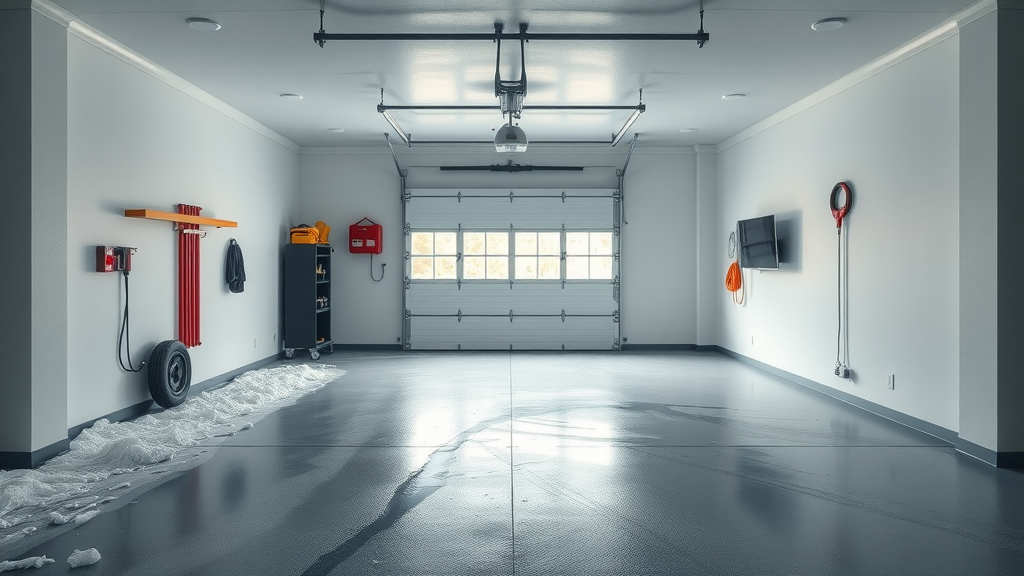
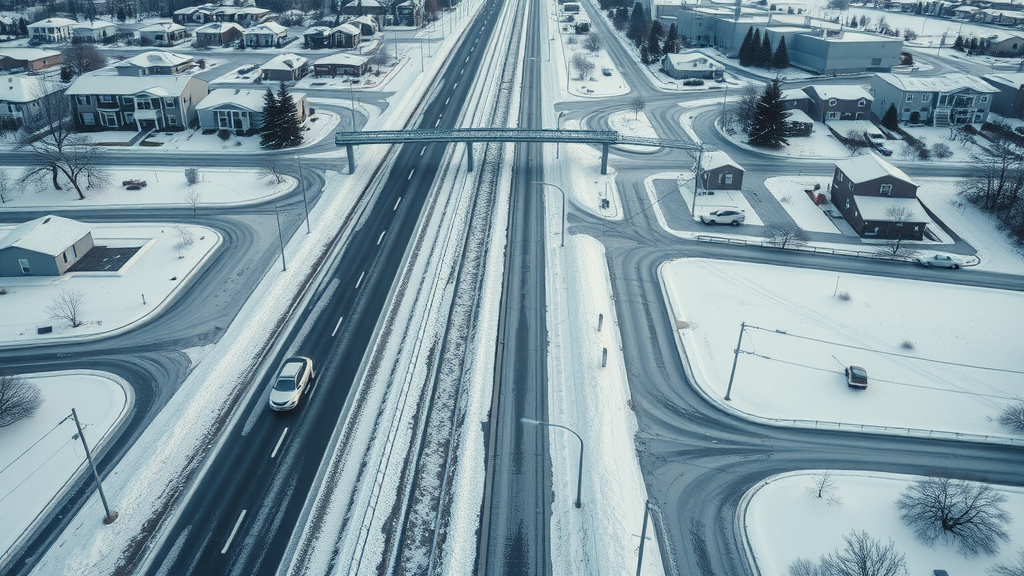
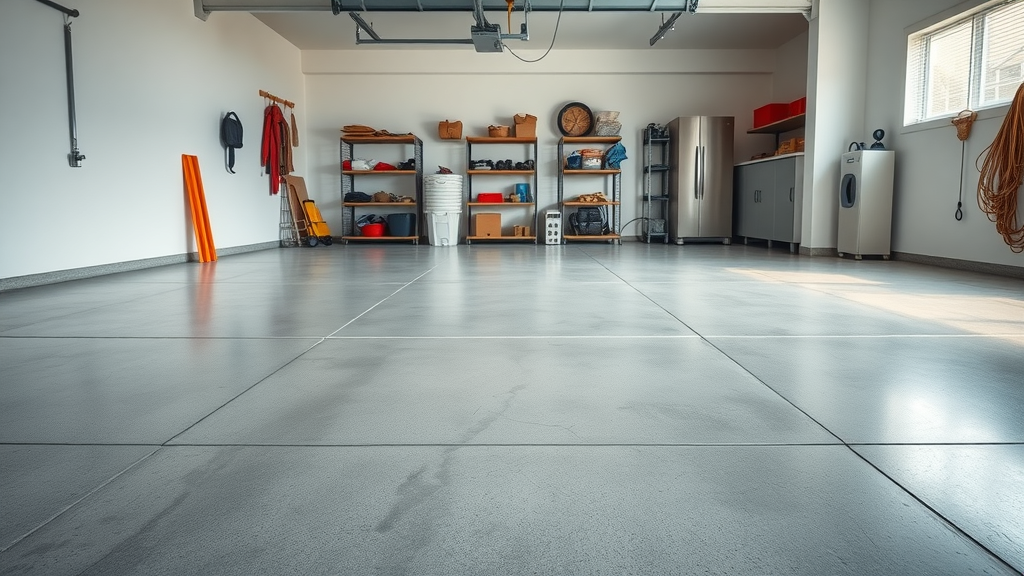
Write A Comment